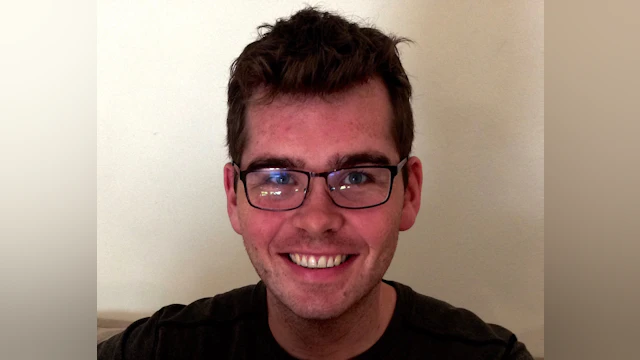The Research Roundup is a regular update of recently published findings in suicide prevention research. AFSP-funded studies included in this roundup examined how…
- Social and health factors cluster among people who die by suicide and of other unnatural causes
- Relatives of individuals who died by suicide may have elevated levels of suicide risk
- Different types of stress contribute to depression and suicidal thoughts and behaviors in teens, and
- Receiving lethal means counseling impacted caregivers of adolescents with behavioral health complaints

Researcher: Leah Richmond-Rakerd, PhD
Institution: University of Michigan
Grant Type: 2021 Pilot Research Grant – $30,000
Grant Title: Predicting Suicide and Self-Harm Risk in Linked Administrative Data
Many people wonder whether health and social disadvantages are associated with deaths by suicide, drug poisoning, or alcohol-related disease (sometimes referred to as “deaths of despair”). It has also been hypothesized that the rise in these types of deaths over recent decades is largely confined to the U.S. due to factors related to increasing inequality in economic opportunities and health care (e.g., a weak safety net, limited communal supports, costly health care, and weak pharmaceutical regulation). Due to the implications these questions have for policymaking and public health strategy, it is necessary to determine the role health care and social disadvantage play in deaths by suicide, drug poisoning, and alcohol-related disease, and if this situation is unique to the U.S.
Dr. Leah Richmond-Rakerd and her team examined 10 years of nationwide data related to 4.1 million working-age (25-64) individuals in New Zealand and Denmark to see if deaths by suicide, drug poisoning, and alcohol-related diseases cluster together. Dr. Richmond-Rakerd found that these specific types of death were prevalent among individuals who most often used services related to social and health care disadvantage, specifically those in the top five percent of disadvantaged populations. These findings suggest that dying by suicide and other unnatural causes is not unique to the U.S. and may be associated with inequalities, even in countries with strong social safety nets and health care systems.
Citation: Richmond-Rakerd, L. S., D’Souza, S., Milne, B. J., & Andersen, S. H. (2023). Suicides, drug poisonings, and alcohol-related deaths cluster with health and social disadvantage in 4.1 million citizens from two nations. Psychological Medicine, 1-10. https://doi.org/10.1017/S0033291723003495

Researcher: Amanda Bakian, PhD
Institution: University of Utah
Grant Type: 2017 Young Investigator Grant – $83,795
Grant Title: Proximal Environmental Exposures for the Chronic Inflammation Suicide Subtype
Suicide risk is complex, with a large range of potential risk factors including environmental and psychosocial factors, as well as biological influences such as genetics. Research has shown that having a family member who died by suicide could potentially contribute to suicide risk for family members. However, the majority of research indicating this has been conducted in Northwestern European countries due to the unique availability of health and multi-generational registries there. A comparative look is needed to see if this risk factor is also relevant in the United States, but U.S. data resources for studying familial risk are limited.
With this in mind, Dr. Amanda Bakian and her team examined data from the Utah Population Database, a unique repository of biomedical information that spans generations and degrees of familial relation. In her study, Dr. Bakian included all people in Utah who died by suicide between 1904 and 2014, and looked at over 2.1 million of their relatives. She then compared them to over 11.3 million relatives of people who did not die by suicide. Results indicated that the risk for suicide was higher in the family members (first- through fifth-degree relatives) of people who died by suicide. Dr. Bakian also found that risk levels were higher if the person who died by suicide was a young adult or woman. Understanding these familial patterns can help tailor public health interventions to target these specific groups more effectively.
Citation: Bakian, A. V., Chen, D., Coon, H., Docherty, A. R., Gray, D., Hanson, H. A., Keeshin, B., Smith, K. R., VanDerslice, J. A., Yu, D. Z., Zhang, C., & Zhang, Y. (2023). A population-wide analysis of the familial risk of suicide in Utah, USA. Psychological Medicine, 53(4), 1448-1457. https://doi.org/10.1017/S0033291721003020

Researcher: Jeremy Stewart, PhD
Institution: McLean Hospital Harvard Medical School
Grant Type: 2016 Pilot Research Grant – $30,000
Grant Title: Towards Identification of Behavioral and Neural Predictors of Adolescent Suicidality
For youth with major depressive disorder (MDD), stress can play an important role in contributing to the severity of depression and the presence of suicidal thoughts and behaviors. While stress plays a significant role, more knowledge is needed in regard to the specific types of stress (e.g., chronic, dependent, independent, rejection-based) that may be at play, and whether they have a different impact depending on when in the course of depression they occur.
Dr. Jeremy Stewart examined stressors in adolescents with current MDD and suicide ideation compared to adolescents with no history of mental health diagnoses or suicidal thoughts and behaviors. Dr. Stewart found that ongoing (i.e., chronic) stress was strongly linked to depression, especially in teens with a history of maternal MDD. Interestingly, there was not a difference in stress severity between teens who had thoughts of suicide and those who made a suicide attempt. However, those who had attempted suicide were more likely to have experienced rejection from others. These findings show that certain types of stress can play a role in teenage depression and suicidal ideation and behavior. This highlights the importance of observing the degree of stress in youths, as well as what the stress is about when determining how to best support youth.
Citation: Stewart, J. G., Pizzagalli, D. A., & Auerbach, R. P. (2023). Stress exposure in at-risk, depressed, and suicidal adolescents. Journal of Child Psychology and Psychiatry, n/a(n/a). https://doi.org/10.1111/jcpp.13935

Researcher: Matthew Miller, ScD
Institution: Northeastern University
Grant Type: 2016 Focus Grant – $1,478,266
Grant Title: An ED-based Randomized Clinical Trial of Lethal Means Counseling for Parents of At-Risk Youth
Suicide attempts in adolescents are often impulsive acts in response to passing and tough-to-predict moments of crisis. Preventative efforts, such as lethal means counseling (LMC), are provided to caregivers in health care settings to reduce access to lethal methods, mainly including firearms and medication. While lethal means counseling has been endorsed by several U.S. medical societies, the application of LMC among clinicians and health care institutions has been limited. To encourage the uptake of LMC in pediatric care, researchers have begun advocating for the use of a shared decision-making model (SDM), which emphasizes a closer collaboration between clinicians and patients.
To examine caregivers' experiences with LMC using the SDM model, Dr. Matthew Miller conducted qualitative interviews with 21 firearm-owning caregivers of adolescents who visited emergency departments in Colorado for behavioral health complaints. Dr. Miller found that caregivers were open to this counseling when clinicians understood their family situation, shared reasons behind the counseling, and discussed safety concerns for their child. However, when counseling was impersonal and didn't consider the family's circumstances, caregivers felt confused and distant. These findings suggest that personalized and sensitive counseling approaches can help caregivers better understand and implement safety measures, potentially reducing suicide risks in adolescents.
Citation: Salhi, C., Beatriz, E., Berrigan, J., Azrael, D., Houston, A., Runyan, C., Barber, C., Betz, M., & Miller, M. (2023). “Your son needs help … and we’re gonna help him”: A qualitative study of the experiences of gun-owning caregivers of adolescents receiving lethal means counseling in the emergency department. Social Science & Medicine, 335. https://doi.org/10.1016/j.socscimed.2023.116218
Learn more about the AFSP research grants featured in this monthly roundup, as well as others, here.
